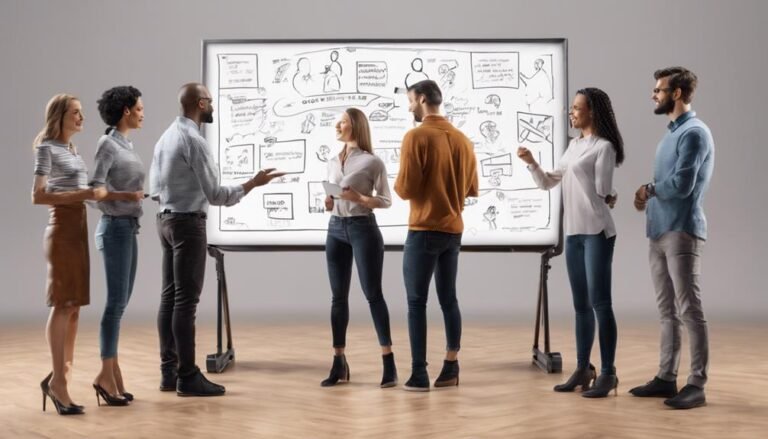Exactly What to Say: The Magic Words for Influence and Impact – Phil M. Jones
Master the art of strategic communication with 'Exactly What to Say: The Magic Words for Influence and Impact' by Phil M. Jones. Learn how to harness words like a pro to influence others and leave a powerful impression. Discover the keys to building trust, crafting persuasive messages, and honing effective communication techniques. Uncover the secrets to creating lasting connections and enhancing your communication skills for success. Immerse yourself in the world of influence and positive communication strategies to elevate your interactions. Elevate your skills and engage in the power of language to make a real impact.
Key Takeaways
- Choose words that resonate with the audience's emotions and values.
- Use language that inspires action and creates urgency.
- Craft messages that address the audience's concerns and interests directly.
- Employ storytelling and humor to engage and connect with the audience.
- Ensure clarity, simplicity, and impact in your communication to leave a lasting impression.
The Power of Words
When you harness the power of words, you can influence minds and inspire action like never before. Words hold incredible power in shaping power dynamics and understanding emotional intelligence. In any interaction, whether professional or personal, the words you choose can determine the outcome.
Understanding power dynamics is paramount in communication. By using words thoughtfully, you can navigate these dynamics effectively. Choosing the right words can shift the balance of power in a conversation, allowing you to convey your message assertively yet respectfully.
Moreover, emotional intelligence plays a significant role in how your words are received. Being aware of your emotions and those of others enables you to tailor your language to foster understanding and connection. Your words can either uplift or demotivate, so it's crucial to communicate with empathy and sensitivity.
Building Trust Through Language
Building trust through language starts with choosing your words carefully to establish a genuine connection with others. Trust building hinges on effective communication, which requires transparency and openness.
When engaging in conversations, use words that convey honesty and empathy. Phrases like 'I understand how you feel' or 'I appreciate your perspective' show that you value the other person's thoughts and feelings.
To foster trust, it's essential to be consistent in your language and actions. Make sure your words align with your behavior, as inconsistency can lead to doubt and skepticism. Additionally, active listening plays a significant role in building trust. Show genuine interest in what others have to say, ask clarifying questions, and rephrase their words to demonstrate understanding.
Crafting Persuasive Messages
To effectively craft persuasive messages, focus on selecting words that resonate with your audience and compel them to take action. Persuasive language and influential communication are key elements in getting your message across effectively. By using words that evoke emotion and trigger a response, you can guide your audience towards the desired outcome.
When crafting your message, consider the needs and desires of your audience. Tailoring your language to address their specific concerns and interests will make your message more persuasive. Use strong, active verbs to convey a sense of urgency and importance. For example, instead of saying 'consider this option,' you could say 'take advantage of this opportunity now.'
Additionally, be clear and concise in your communication. Avoid using jargon or overly complex language that may confuse your audience. Keep your message simple and to the point, focusing on the benefits and value you're offering. Remember, the goal is to persuade and inspire action, so choose your words carefully to make a lasting impact.
Techniques for Effective Communication
For effective communication that resonates with your audience and drives action, employ techniques that prioritize clarity, engagement, and connection. Communication techniques play an important role in effective persuasion. To communicate effectively, start by being clear and concise in your message. Avoid jargon or complicated language that might confuse your audience. Instead, use simple and straightforward terms to make sure your message is easily understood.
Engagement is key in capturing your audience's attention. Use storytelling, humor, or interactive elements to keep them interested and invested in what you have to say. This not only helps in retaining their focus but also makes your message more memorable.
Establishing a connection with your audience is crucial for effective communication. Show empathy, listen actively, and tailor your message to resonate with their needs and interests. By building a connection, you create a sense of trust and understanding that can have a significant impact on the success of your communication efforts. Remember, effective communication isn't just about what you say, but how you say it and how well you connect with your audience.
Creating Lasting Impressions
When it comes to making a lasting impression, your first interactions play a significant role.
Utilizing impactful communication techniques can help you stand out in the minds of others.
Memorable First Interactions
Creating lasting impressions starts with engaging in genuine and memorable first interactions. Your initial communication techniques and first impressions are essential in leaving a positive impact.
When meeting someone for the first time, remember to maintain eye contact, offer a warm handshake, and greet them with a smile. Use active listening skills to show interest in what they've to say and ask thoughtful questions to deepen the conversation. Be authentic and attentive, as people appreciate sincerity and genuine connections.
Impactful Communication Techniques
Engage with impactful communication techniques to leave a lasting impression on those you interact with. By using effective communication strategies and impactful language, you can enhance the way you connect with others. Here is a handy table summarizing some key communication techniques to help you make a lasting impact:
| Communication Strategy | Example |
|---|---|
| Active Listening | 'I hear what you're saying.' |
| Empathy | 'I understand how you feel.' |
| Clear and Concise Messaging | 'Let me summarize our main points.' |
| Positive Reinforcement | 'Great job on that project.' |
| Open-Ended Questions | 'What are your thoughts on this?' |
Implementing these strategies can greatly improve how you communicate and leave a positive, long-lasting impression on others.
Words for Influence and Impact
Craft your message with words that captivate and compel, leaving a lasting impact on your audience. By incorporating persuasive phrases and influential language, you can greatly enhance your ability to sway opinions and inspire action.
When you choose your words thoughtfully, you can create a sense of urgency and importance in your audience's minds. Phrases like 'limited time offer,' 'exclusive access,' or 'act now' can spur people to take immediate action.
Moreover, using influential language can help you establish credibility and authority. Words like 'expert,' 'proven,' or 'results-driven' can make your audience more receptive to your message. By framing your ideas in a positive light and emphasizing the benefits, you can effectively persuade others to see things from your perspective.
Language Strategies for Success
To elevate your communication skills and achieve success, master the art of using language strategically to influence and inspire action. Language mastery and communication secrets are key to making a lasting impact on those around you. Here are three essential strategies to help you on your path to success:
- Precision in Words: Choose your words carefully to convey your message clearly and concisely. Avoid ambiguity and guarantee that your message is understood exactly as intended.
- Emotional Connection: Build rapport by incorporating emotional language that resonates with your audience. Connecting on an emotional level can inspire action and create lasting impressions.
- Active Listening: Communication is a two-way street. Practice active listening to truly understand the needs and perspectives of others. By listening attentively, you can respond effectively and tailor your language to address specific concerns.
Enhancing Communication Skills
To enhance your communication skills:
Focus on delivering clear verbal messages, practicing active listening techniques, and being aware of nonverbal communication cues. These skills will help you effectively convey your thoughts and understand others better in conversations.
Clear Verbal Messages
When enhancing your communication skills, ensuring your verbal messages are clear is essential for effective interaction. To achieve communication clarity and maximize your verbal impact, consider the following:
- Be Concise: Get straight to the point to avoid confusion.
- Use Simple Language: Make sure your message is easily understood by all.
- Avoid Jargon: Speak in terms that everyone can comprehend.
Active Listening Techniques
Engage in active listening techniques to enhance your communication skills effectively. Active listening involves fully concentrating on what the speaker is saying, understanding their message, and responding appropriately.
To sharpen your communication skills, practice giving the speaker your full attention, maintaining eye contact, and avoiding distractions. Show that you're engaged by nodding, providing verbal cues, and summarizing key points to demonstrate your understanding.
By actively listening, you create a more positive and productive dialogue, fostering stronger connections and building trust with others. Remember, communication is a two-way street, and active listening is a powerful tool to improve your interactions and relationships.
Prioritize honing your active listening skills to become a more effective communicator.
Nonverbal Communication Cues
Enhance your communication skills by paying attention to nonverbal cues during interactions. Nonverbal communication cues play an essential role in conveying messages effectively. Here are three key elements to ponder:
- Body Language: The way you position your body can speak volumes about your level of interest and engagement in a conversation.
- Facial Expressions: Your facial expressions can convey emotions and intentions more powerfully than words alone. Pay attention to the messages your face is sending.
- Eye Contact: Making appropriate eye contact shows attentiveness and interest in the person you're communicating with. It builds trust and rapport in the interaction.
Mastering these nonverbal cues can greatly enhance your communication impact.
Keys to Meaningful Interactions
For more impactful conversations, focus on fostering genuine connections and active listening. Effective communication is built on the foundation of meaningful connections. When you engage in conversations with others, make sure to listen attentively, show empathy, and ask thoughtful questions. By doing so, you not only convey respect but also create a space for open dialogue and understanding.
Here's a practical tool to enhance your interactions:
| Key to Meaningful Interactions | Description | Example |
|---|---|---|
| Active Listening | Listen attentively | Paraphrase what you heard |
| Empathy | Show understanding | Acknowledge their feelings |
| Thoughtful Questions | Encourage dialogue | Ask open-ended questions |
The Art of Influence
To wield influence effectively, focus on mastering the art of persuasion through strategic communication and impactful actions. When it comes to influencing others, employing specific influence tactics and persuasion techniques can greatly enhance your effectiveness. Here are three key strategies to help you master the art of influence:
- Build Trust: Establishing trust is vital in gaining influence. By demonstrating reliability, honesty, and integrity, you can create a strong foundation for influence.
- Active Listening: Engage in active listening to understand the perspectives and concerns of others fully. By showing genuine interest and empathy, you can build rapport and tailor your messages effectively.
- Emotional Intelligence: Developing emotional intelligence allows you to navigate complex interpersonal dynamics with finesse. Being aware of emotions, both yours and others', enables you to adapt your communication style and influence outcomes positively.
Frequently Asked Questions
How Can I Use Language to Improve My Negotiation Skills?
To boost your negotiation skills, master powerful phrases and effective persuasion techniques. Use smart language tactics to influence outcomes. Craft strategic negotiation strategies that showcase your strengths and lead to successful agreements.
What Are Some Common Pitfalls to Avoid in Communication?
To steer clear of misunderstandings, hone your listening skills. Stop the endless cycle of miscommunication by truly tuning in. Avoid common pitfalls like assuming and interrupting. Practice active listening for smoother conversations and better connections.
Can Body Language Affect the Impact of the Words We Use?
Yes, body language greatly impacts the words you use. Nonverbal cues like gestures and tone can enhance or detract from your message's effectiveness. Pay attention to your body language to guarantee your words have maximum impact.
Are There Specific Words to Use for Building Rapport Quickly?
To build relationships quickly and increase influence, use words that show empathy, understanding, and appreciation. Express genuine interest in others, ask thoughtful questions, and listen actively. These simple gestures can create powerful connections in no time.
How Can I Tailor My Communication Style for Different Audiences?
To tailor your communication style for different audiences, focus on audience adaptation and communication customization. Use a variety of approaches, adjust your tone, and be flexible. With a sprinkle of creativity and empathy, you'll ace it!
Conclusion
So there you have it – the magic words that can truly make a difference in your interactions and relationships.
Remember, 'actions speak louder than words,' but the right words can certainly pave the way for success.
By mastering the art of communication and using these techniques effectively, you can leave a lasting impact and influence others in a positive way.
Don't underestimate the power of your words – they've the potential to change everything.







